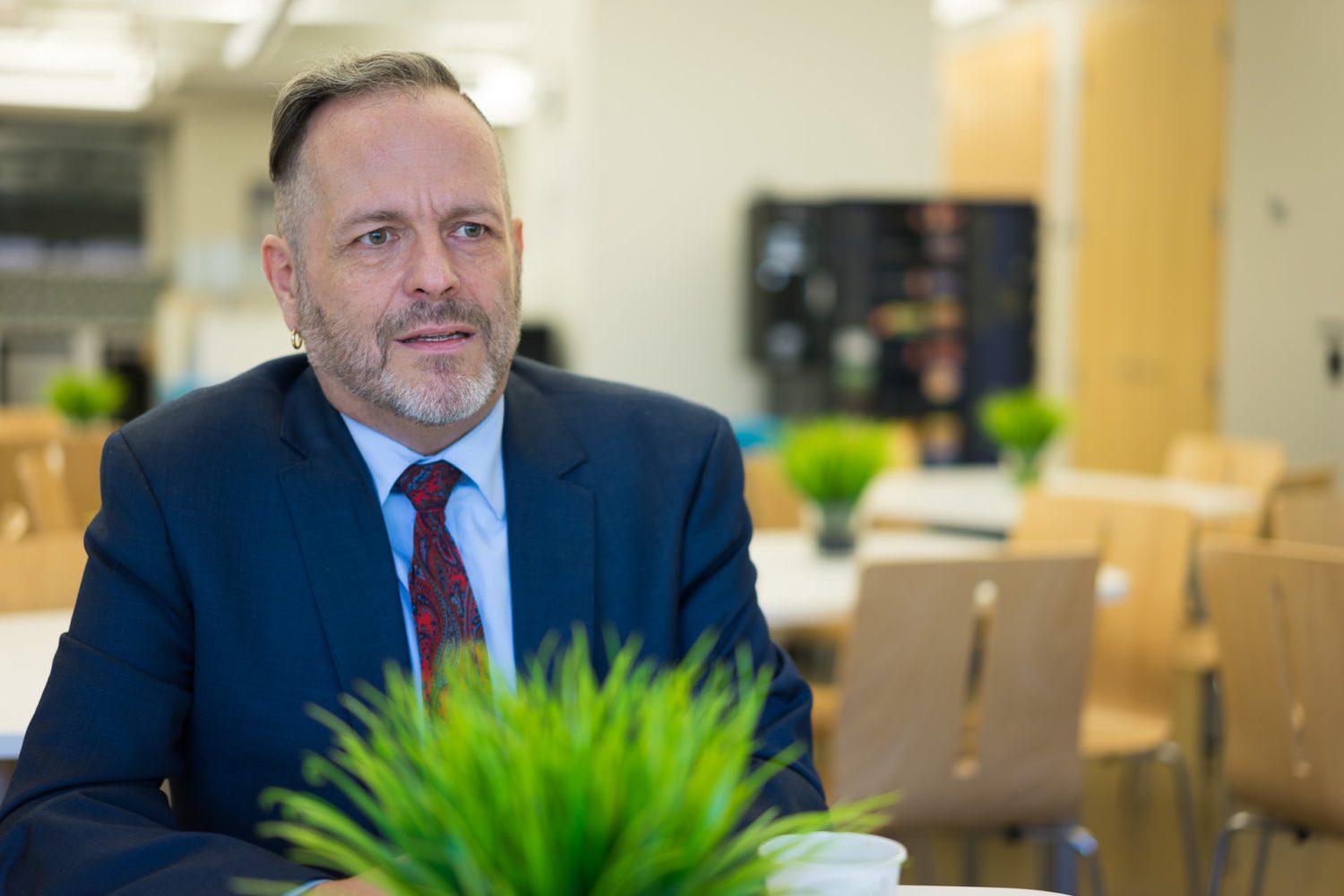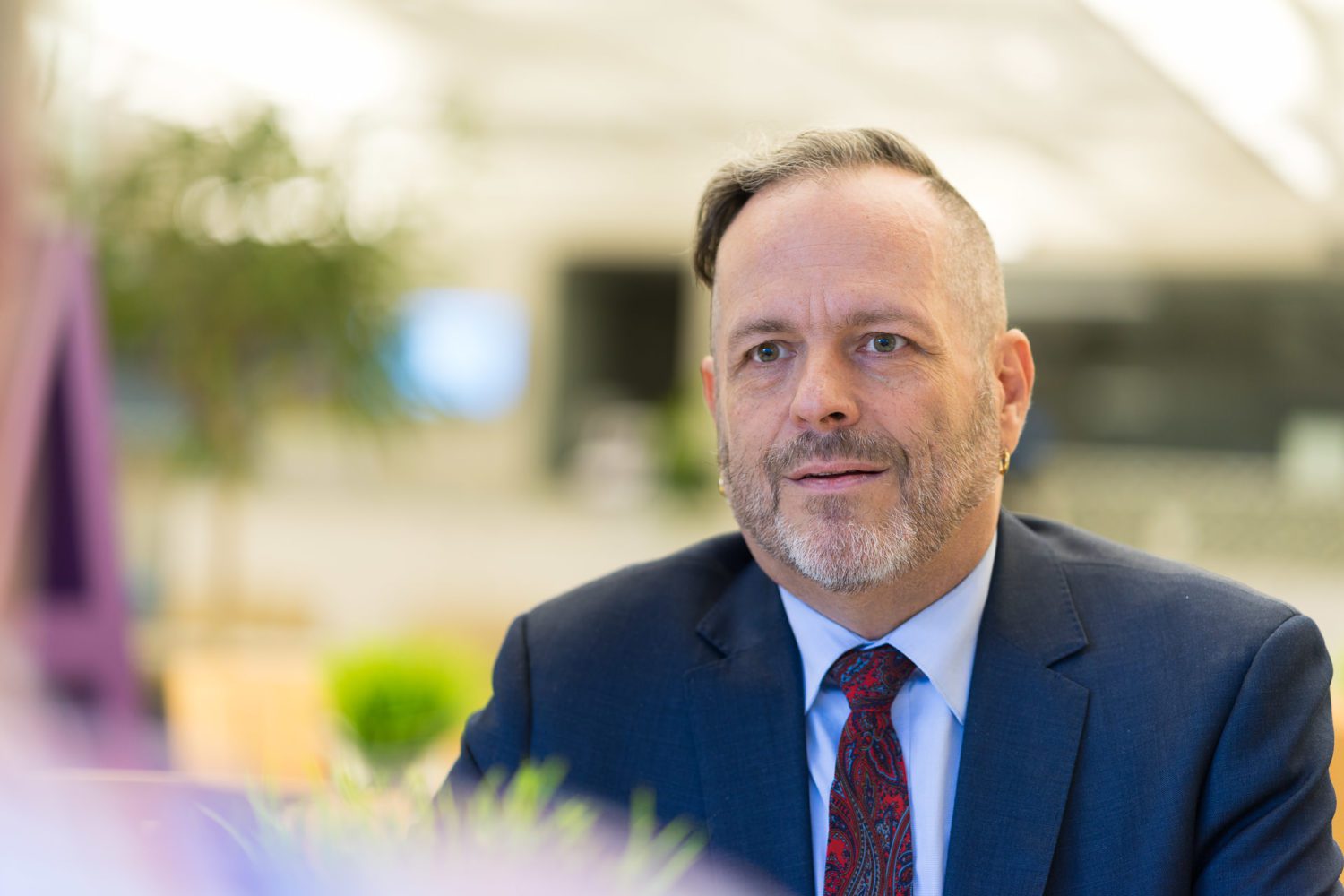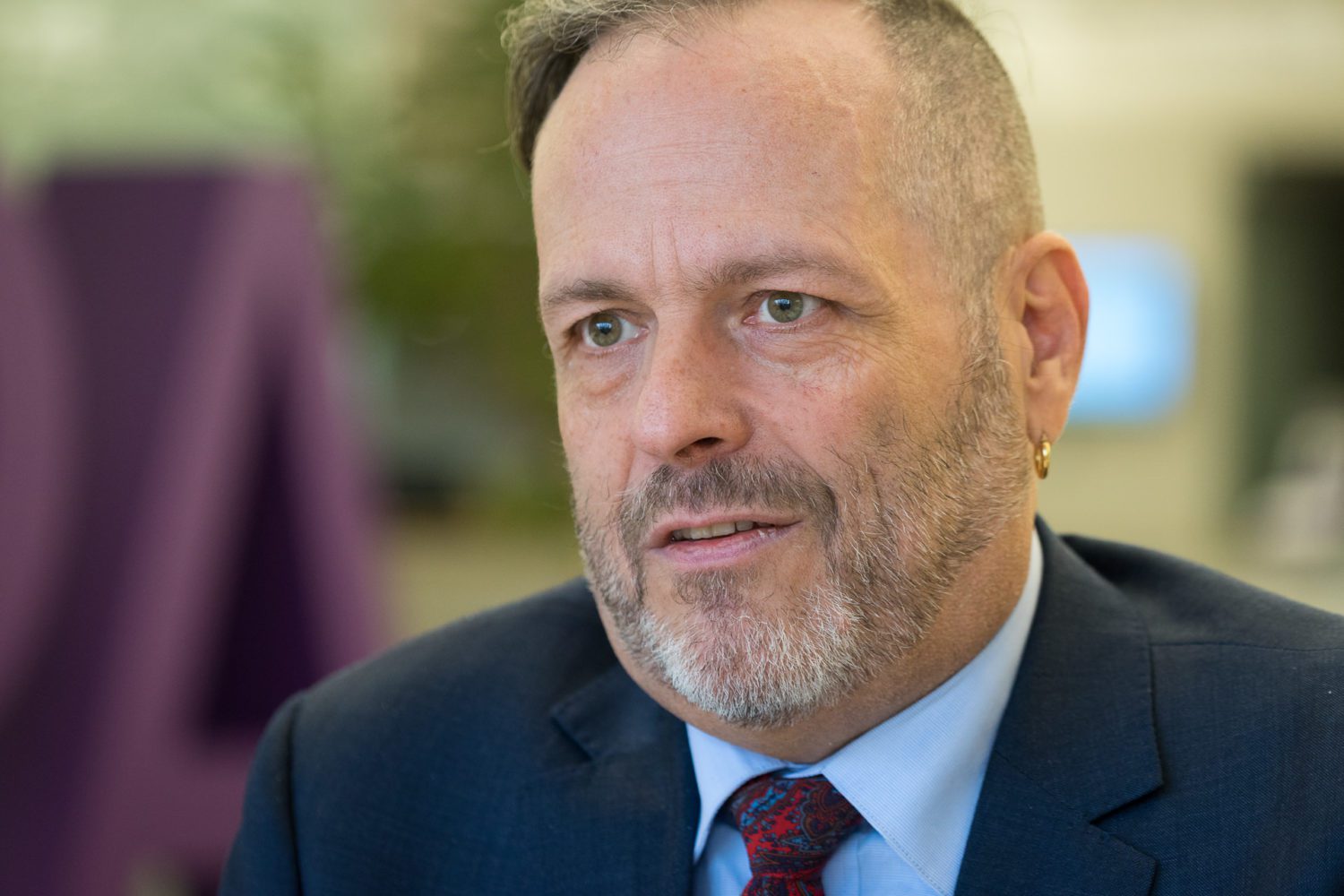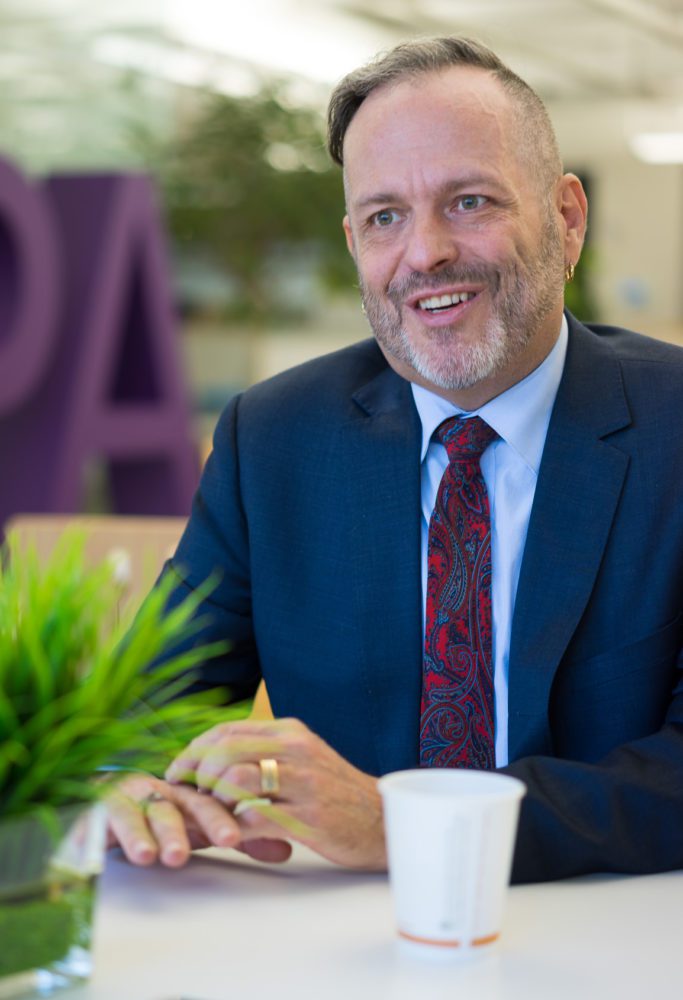Brian lives with HIV, asthma and chronic obstructive pulmonary disease. He has served on many advisory committees, including currently the Ontario Health Technology Advisory Committee.
I have had HIV for 26 years. Because of advances in treatment, it’s not the same disease. But the stigma is still there. You know, just convincing people to get tested! It’s like this lopsided thing where we have moved so far with medical treatment, but not on the societal stigma end. We’ve had 25 years of really great medical advances, but maybe five years of social advancement.
We are in this global information milieu, so the stigma that is felt in other countries can flow over the border and slow things down in Canada. Stigma from Russia, Africa, South and Central America or Asia flows into our consciousness. If we make progress here, people will get the opposite information through the Internet. The attitudes about homosexuality around the globe still flow here.
Physicians bring their personal views and judgments to their work. To think that they are just this blank slate is naïve. I have friends who have disclosed drug use to their physician, and their physician treated them in a very judgmental way rather than trying to find out the reasons for that usage.
You can’t grow up as a fundamentalist Christian or somebody with very strong views around homosexuality and not bring those views with you, whether you are an engineer or a doctor or whatever. I don’t know that there is a solution other than finding people who are flexible and can serve that population.

Around the OHTAC table, where we recommend whether or not a new technology should be made available in Ontario, there’s great expertise. What I bring is a layman’s inquisitiveness. I am not afraid to ask a dumb question. I am not dissing people who have a lot of letters after their name, but a cardiologist can’t ask the dumb questions I can. I can look at things and say, “That just doesn’t make sense.” Those are the questions that most of the public have. It takes a certain amount of bravery to sit at the table with a bunch of very educated people and ask the silly question.
I am not accountable to a hospital board. I am not accountable to anyone else when I sit at that table. Whereas some of the others have, not conflicts, but pressures. I don’t have those external pressures. I can ask, “Why don’t we do this if it makes a difference? Do you know what it’s like to sit for an hour in that waiting room? Then go to a lab and wait to have blood drawn? And then to X-ray. And then to a follow-up visit?”
Physicians bring their personal views and judgments to their work. To think that they are just this blank slate is naïve.
It sounds like nothing from some people’s perspective, but if a technology saves me one of those trips it can be huge. I probably have some sort of medical appointment every week. It’s an incredible amount of time. I live in Toronto so a doctor’s appointment at 2 p.m. means I have to leave work at 1. If I am actually in at 2, it means I may be done by 2:30. If I have to go for lab work, it’s till 3:30, and I am back at work at 4 p.m.

Do you feel pressure to represent the broad spectrum of patients while you are on the committee?
There’s no way anybody can represent the broad spectrum of patients. Not everybody has COPD. Not everybody has HIV. I don’t have arthritis or a major arterial disease. But I know what it’s like to experience the wait, the pain, the inconvenience of health care. On those things I represent a very broad patient group. If I put on my HIV lens only, that’s very narrow. But when I talk about going to the lab, about seeing a specialist, the wait times, the engagement with my physician and other professionals, I think my experience is similar to many others.
I have to explain to many of my friends what the doctor has told them. Recently, a friend having leg surgery had to decide whether to have a general anaesthetic or an epidural. Both have positives and negatives. He was asked to make the decision without the information he needed. I ended up finding him information off the Internet about what each option would mean in terms of risk and recovery.
I worry about how somebody who has no literacy around health care or the health care system will stand up. Physicians and medical folks have a lot of power. If I have trouble with that sometimes, I can’t imagine what happens with someone who has less knowledge and confidence.
The stigma is still there. You know, just convincing people to get tested!
A lot my friends come to me because I tell them questions to ask. Some of the most important are, “Do I need to start this treatment right now or is it something we can monitor over the next three, six, nine months?” “Are there any alternatives in terms of lifestyle?” “Is there anybody who is going through the same thing, who I might be able to talk to?”
How do you decide where to go for information?
I go to places like the Canadian AIDS Treatment Information Exchange. There is also some amazing stuff at the National Institutes of Health sites. I go to sites quoted by people I trust.
But it’s tough. There’s a lot of misleading information out there. I’m sure physicians have all sorts of people come in who have taken stuff off the Internet and a lot of it is hooey. Right now I am doing research on a topic that I’ve heard through many of my friends that there is a solution to. But it’s not a solution supported by my physician. So I have to research that. I will go to some journals. Peer-reviewed journals are really important because people can pay to have a paper published in non-peer-reviewed journals nowadays. Then I will have a conversation with my physician.
Do you know what it’s like to sit for an hour in that waiting room? Then go to a lab and wait to have blood drawn? And then to X-ray. And then to a follow-up visit?
I was treated for asthma and COPD for many years and never saw a respirologist. My breathing finally got so bad that my GP referred me to a fantastic respirologist. We were able to get things under control by changing my medications. For instance, I now take an antibiotic daily as a prophylaxis and I haven’t had pneumonia for two years, while before I had pneumonia two or three times a year. Those little changes in terms of current practice had not funnelled down to my GP. That’s why you see a specialist!
I don’t know whether there was a reluctance to refer. Maybe my presentation didn’t seem critical. It is what it is. My lungs probably wouldn’t be any better if I had been referred two years earlier, but my quality of life might have been.




The comments section is closed.